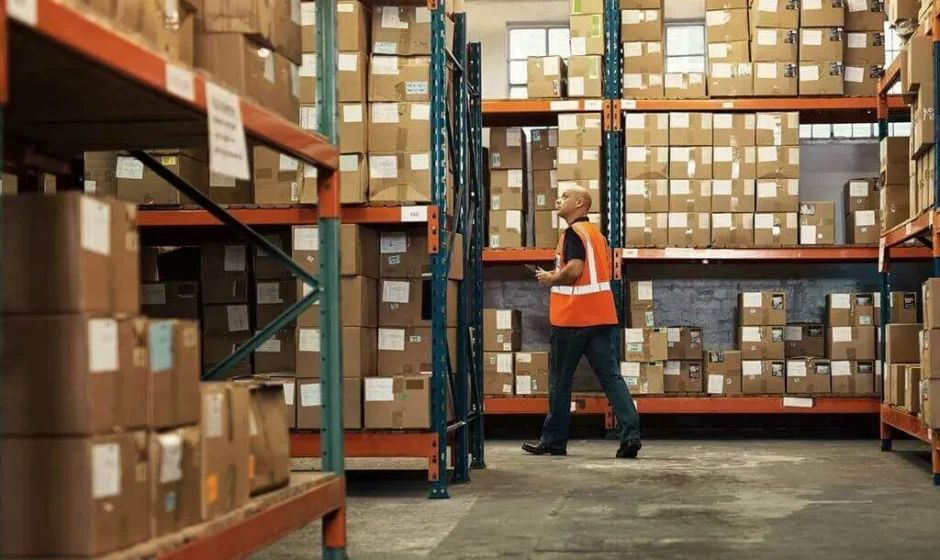Wholesale distributors play a crucial role in the global supply chain by connecting manufacturers with retailers, businesses, and even direct consumers. If you’re involved in any form of trade or looking to start your own business, understanding wholesale distribution can provide key insights into how to scale your operations and access products at a competitive price. This article will explore the role of Distributor, how they work, their benefits, and tips on finding the right one for your business.
What is a Wholesale Distributor?
A wholesale distributor is an intermediary between the manufacturer and the retail or commercial businesses. They purchase products in bulk directly from manufacturers, store them in warehouses, and then sell them to retailers or businesses at a markup. These distributors typically deal with large quantities of goods and can serve a variety of industries, from electronics and clothing to industrial machinery and consumer goods.
The primary distinction between wholesalers and retailers is the volume of goods sold and the type of buyer they serve. While retailers sell directly to consumers, wholesalers sell to businesses in bulk at lower prices, allowing those businesses to sell the products at a higher price to consumers. This model makes wholesale distribution a critical aspect of many supply chains.
Types of Wholesale Distributors
Wholesale distributors come in various forms, each catering to different industries and market needs. Below are the main types of wholesalers:
- Merchant Wholesalers (Distributors)
These wholesalers buy products in bulk from manufacturers and store them in their own warehouses. They then sell these goods to retailers, other wholesalers, or sometimes directly to businesses. Merchant wholesalers take ownership of the goods, managing the risk associated with holding stock. They are also responsible for marketing, sales, and shipping. - Brokers and Agents
Unlike merchant wholesalers, brokers and agents do not take ownership of the products they sell. Instead, they act as intermediaries, facilitating the sale of products between manufacturers and retailers or other buyers. They earn a commission for their services but do not handle the products themselves. - Cash and Carry Wholesalers
Cash and carry wholesalers operate a self-service model, where customers (typically retailers) come to their warehouse, select the products they want, and pay immediately. This model is typically used for smaller goods or products that don’t require extensive storage or delivery. - Drop Shipping Wholesalers
A drop shipping wholesaler doesn’t hold stock. Instead, they ship products directly from the manufacturer to the retailer or end customer. This model is commonly used in e-commerce because it eliminates the need for inventory storage and management. - Specialty Wholesalers
These distributors focus on a specific product category, such as electronics, fashion, or food. Specialty wholesalers tend to have deeper knowledge of their niche markets and offer a curated selection of products.
How Wholesale Distribution Works
The process of wholesale distribution is relatively straightforward. Here’s how it works step-by-step:
- Manufacturer to Wholesaler
A manufacturer produces goods in large quantities and sells them to wholesale distributors. The wholesaler buys these goods in bulk at a price significantly lower than retail. - Wholesaler to Retailer/Business
Once the wholesaler has purchased the products, they store them in a warehouse or distribution center. They then sell the products to retailers or businesses, often in large quantities. Retailers use these products to resell to their customers at a markup. - Logistics and Delivery
The wholesaler handles logistics, ensuring the goods are delivered to retailers or business customers. This may involve managing inventory, processing orders, shipping, and sometimes offering additional services like packaging and customizations.
Benefits of Using Wholesale Distributors
Wholesale Distributors offer numerous benefits to businesses, which is why many companies rely on them to source their products. Some key advantages include:
1. Cost Savings
By buying in bulk, businesses can reduce the per-unit cost of goods, which can translate into higher profit margins. Wholesale distributors usually offer substantial discounts compared to retail prices, making it easier for businesses to keep their costs low.
2. Wide Product Range
Wholesale distributors often carry a diverse range of products. This allows businesses to access a variety of goods from different manufacturers, helping them cater to various customer needs without having to deal with multiple suppliers.
3. Reliable Inventory Management
Established distributors have sophisticated inventory management systems in place. This helps ensure that products are available when needed and that restocks happen on time. For businesses, this reliability is essential for maintaining a smooth operation and keeping customers satisfied.
4. Access to Quality Products
Many Bj Wholesale distributors work directly with trusted manufacturers or brands. This allows businesses to access high-quality products that are in demand, enhancing their credibility and reputation in the market.
5. Faster Time-to-Market
Working with a reliable distributor means a business can get the products they need faster, which is especially important in industries where trends shift rapidly. The shorter lead times associated with wholesale distributors can help businesses stay ahead of the competition.
6. Lower Risk
Distributors often take on the responsibility of managing inventory and storage, reducing the risks involved for smaller retailers and businesses. In some cases, distributors may also offer a return policy for unsold goods, making it easier for businesses to manage their own risk.
How to Find the Right Wholesale Distributor for Your Business
Choosing the right wholesale distributor is one of the most important decisions for any business that relies on wholesale distribution. Here are some tips on how to select the best distributor for your needs:
1. Identify Your Product Needs
The first step in choosing a distributor is to clearly define the products you need. Are you looking for a wide variety of goods or do you want a specialty distributor? Do you need fast shipping or longer lead times? Defining your needs will help you narrow down potential distributors.
2. Evaluate Reputation and Experience
Look for distributors with a proven track record in your industry. Experience matters, as it ensures that the distributor understands the ins and outs of supply chain management, including logistics, pricing, and customer service. You can often find reviews or testimonials from other businesses that have worked with them.
3. Check Product Quality and Pricing
It’s essential that the distributor offers products of good quality and at competitive prices. Compare prices across multiple wholesalers and ensure that the products they offer meet your quality standards.
4. Assess Their Customer Service
Good communication and customer service are vital when working with a distributor. They should be responsive, transparent, and willing to help resolve issues when they arise. This is especially important if you encounter any problems with your orders.
5. Logistics and Delivery Capabilities
Ensure that the distributor can handle the logistics of your product requirements. Do they offer timely deliveries? Do they ship internationally, if necessary? Consider their storage capabilities, delivery times, and shipping costs.
6. Request References
Ask potential distributors for references from other businesses they have worked with. Speaking with other customers can give you valuable insights into the reliability and professionalism of the distributor.
Conclusion
Wholesale distributors are essential players in the supply chain ecosystem. They allow businesses to access a wide variety of products at competitive prices while managing inventory, logistics, and shipping. Choosing the right Wholesale Extracts Flavorfrenzy distributor can significantly impact your business’s bottom line, so it’s important to assess your needs carefully, evaluate potential distributors, and build a strong, reliable partnership.
Whether you’re a small retail shop or a large enterprise, working with a trustworthy wholesale distributor can help you save costs, streamline operations, and scale your business efficiently.




